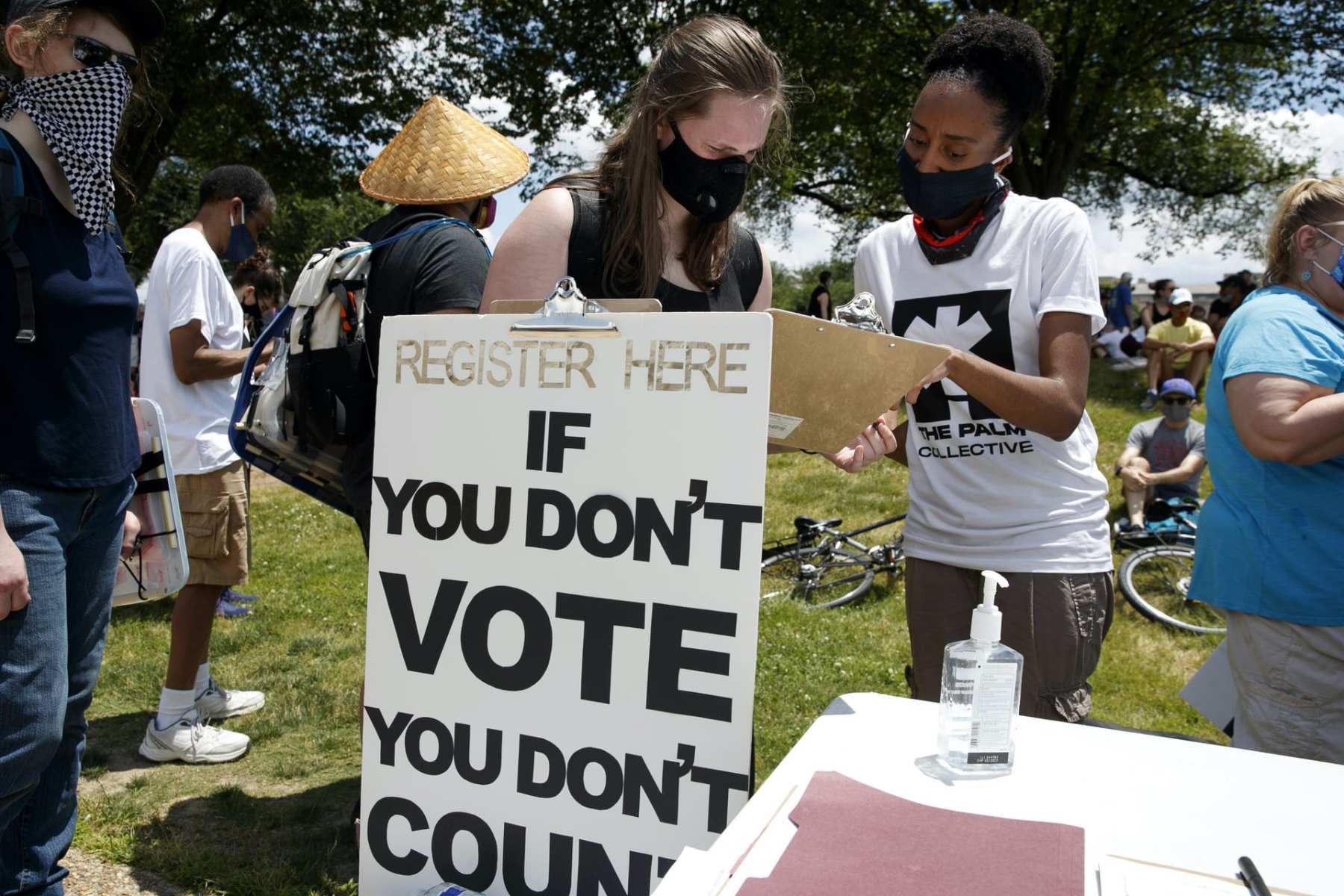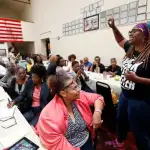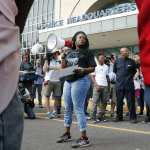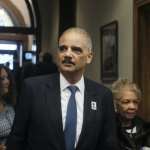This reporting was supported by the International Women’s Media Foundation’s Howard G. Buffett Fund for Women Journalists.
On Thursday, the day after a Kentucky grand jury ruled that none of the officers in Breonna Taylor’s fatal shooting were criminally responsible for killing her, Morgan Walker took the day off. She was overwhelmed, unable to smile at a Zoom screen full of her high school American literature students.
“I couldn’t take being around people at that moment, or as a teacher, having to show my face on camera to my students and act like everything is fine,” said the Sacramento educator. “I feel like an actress every day.”
After the grand jury’s decision was announced, Democratic nominee Joe Biden condemned the decision, but also tempered his remarks with calls for calm.
President Donald Trump re-emphasized his support for law enforcement, praising Kentucky Attorney General Daniel Cameron without mentioning Taylor.
“It’s infuriating that the president is consciously saying, ‘I support the police’ and not saying much at all about the racism in his county,” Walker said. “It’s like he doesn’t even think it exists.”
The issue of “race and violence in our cities” will be on the agenda Tuesday in the first presidential debate of the 2020 general election cycle. The framing of the topic — selected by moderator Chris Wallace of Fox News — conflates two issues, say organizers and activists, causing concern for voters who support both policing reforms and the Black Lives Matter protests that have swept across the nation since May.
Black Voters Matter co-founder LaTosha Brown said the president is “sending a strong message” by sticking to his “law and order” theme.
“Sometimes we vote because we’re inspired and sometimes we vote because we’re mad as hell,” said Black Voters Matter co-founder LaTosha Brown, whose organization is on a multi-city bus tour working on registration and turnout. “Women are outraged.”
The overall issue of criminal justice reform is on the ballot for Black women, said Adrianne Shropshire of BlackPAC, adding that Black women are an often overlooked constituency on the issue of police violence.
“Black women are on the front line, both because it is an issue affecting Black women directly and they care about their communities in general,” Shropshire said.
Contrasting responses from Trump and Biden on the issue of systemic racism, particularly in policing, will likely be on display at Tuesday night’s debate.
Trump has repeatedly dismissed the idea of systemic racial bias in policing, instead attributing the disproportionate shooting and killing of Black people by law enforcement to a few “bad apples,” and calling for more respect for officers. Amid the national reckoning on race this summer, the president focused on riots, looting and destruction of racist statues rather than the issues raised at the protests, 93 percent of which have been nonviolent.
A recent Pew poll showed a majority of Americans still support the Black Lives Matter movement, though the number has dropped from 67 percent in June to 55 percent earlier this month. Nearly 9 in 10 Black Americans in the poll support the movement, compared to 45 percent of White people (down from 60 percent in June).
Biden’s record on criminal justice could also be at issue on Tuesday night — in particular, his role in the passage of the 1994 crime bill. The legislation was an issue with progressive voters in the primary. They blamed the former longtime chairman of the Senate Judiciary Committee for contributing to the era of mass incarceration that impacted a generation of mostly Black men.
Republican strategist Susan Del Percio said that by conflating public safety with “law and order,” the issue could also hurt Trump with voters he needs for re-election: White women. Recent polling continues to show Biden with an advantage over Trump with women voters. And White women have been among those wrestling with questions of privilege and identity during the national reckoning, which could factor into their participation in November.
“Public safety is what everyone wants — including suburban women,” Del Percio said. “For anyone who’s slightly on the fence who voted for him last time, if they’re hesitant, he’s trying to use this as a tactic to bring them back. It’s not necessarily the wrong idea, but he’s doing it the wrong way.”
Taylor’s case has been at the center of the #SayHerName movement, which launched in 2014, the same year as Black Lives Matter, but focused specifically on Black women and girls who have experienced police violence.
It also comes amid months of Black Lives Matter protests, all against the backdrop of a pandemic that has disproportionately impacted women — who make up the majority of the American electorate — in nearly every way but the fatality rate. Black women specifically have suffered in the dual pandemics of COVID-19 and systemic racism, especially economically: Losing more than 1.4 million jobs; working in essential jobs at nearly double the rate of their representation in the workforce; and as the more likely breadwinners even as they earn less than White men.
Brown said opponents of racial justice in America have “stirred up a hornet’s nest.”
“Not only does [Trump] not care, but fundamentally, he is part of the problem,” Brown said.
The first presidential debate, a 90-minute event happening at Case Western Reserve University and Cleveland Clinic, is the first of three scheduled over the next five weeks as in-person early voting is already underway in several states and millions of voters have requested mail-in ballots. Other previewed topics for discussion at the September 29 debate are the Trump and Biden records, the Supreme Court, COVID-19 and the integrity of the election.
From the Collection






